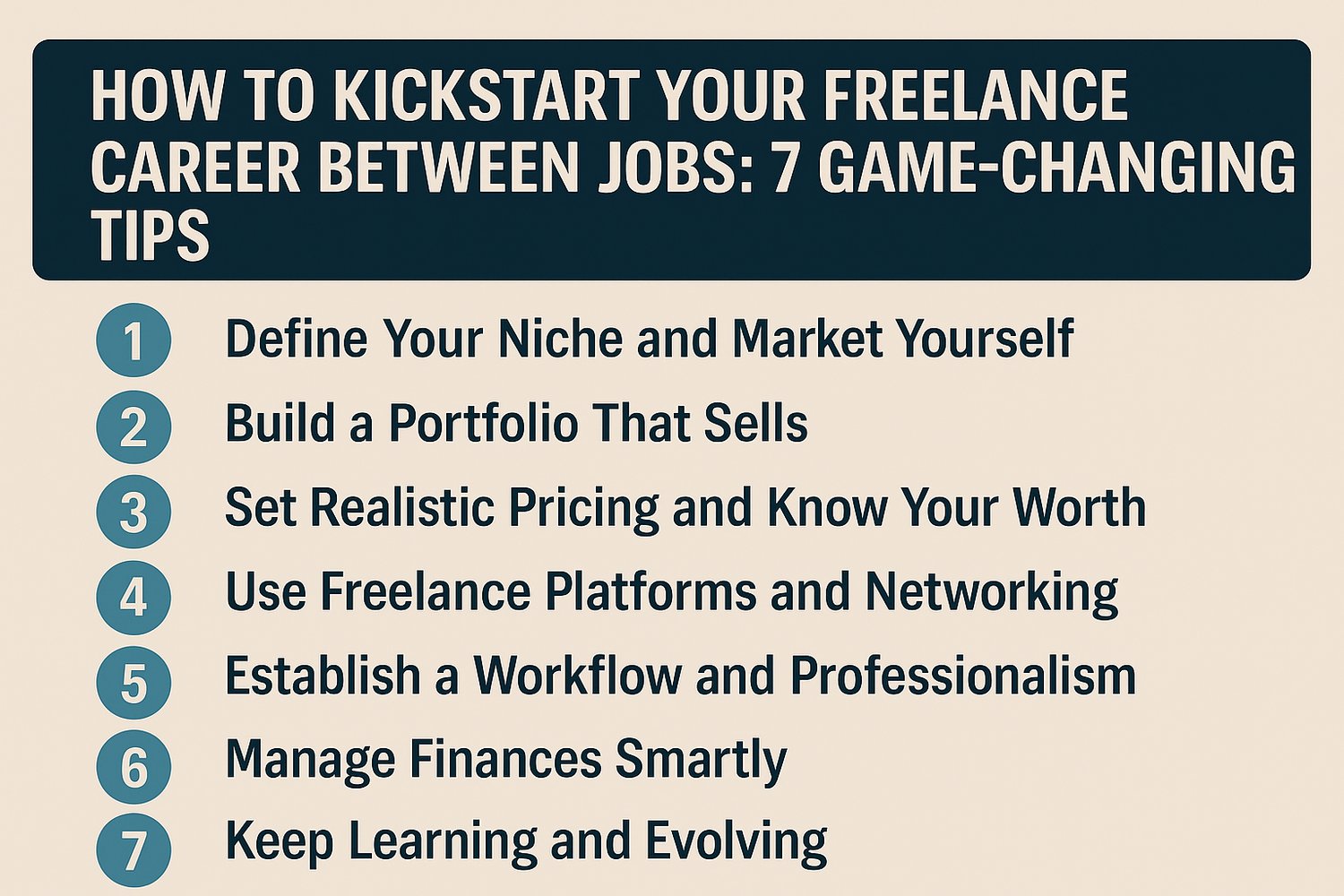Life between jobs can feel uncertain, but it’s also an opportunity—one you can use to build a freelance career that puts you in control. Whether you're looking to earn extra income, sharpen your skills, or transition into full-time freelancing, this guide will help you navigate the process with confidence. Here are seven essential tips to launch your freelance journey successfully.

1. Define Your Niche and Market Yourself
Freelancing is competitive, but finding your niche gives you an edge. Identify your strongest skills and research what services are in demand. Then, craft a compelling personal brand that showcases your expertise. A strong LinkedIn profile, portfolio website, or engaging social media presence can help attract clients.
2. Build a Portfolio That Sells
Even if you’re just starting, you need proof of your skills. Create sample projects or offer work at discounted rates to friends, small businesses, or nonprofits in exchange for testimonials. A polished portfolio demonstrates your ability and increases trust with potential clients.
3. Set Realistic Pricing and Know Your Worth
Pricing can make or break your freelance business. Research industry rates and consider your experience, skills, and value. Platforms like Upwork and Fiverr offer insights into pricing trends. Avoid undervaluing yourself—clients respect professionals who charge fairly for quality work.
4. Use Freelance Platforms and Networking
Leverage platforms like Fiverr, Upwork, or Toptal to find clients, but don’t rely solely on them. Networking is just as powerful—reach out to former colleagues, attend industry events, and join professional groups. The more connections you build, the more opportunities will come your way.
5. Establish a Workflow and Professionalism
Freelancing requires discipline and organization. Set clear deadlines, create contracts, and use project management tools like Trello or Asana. Professionalism—including responsive communication—impresses clients and encourages repeat business.
6. Manage Finances Smartly
Unlike a traditional job, freelancing doesn’t guarantee steady income. Budget wisely, set aside money for taxes, and track earnings with tools like QuickBooks or Wave. Consider opening a separate account for freelance payments to keep finances organized.
7. Keep Learning and Evolving
Freelancers who continuously learn stay ahead of the competition. Take online courses, read industry blogs, and refine your skills. Whether it’s improving technical abilities or mastering business strategies, growth is key to long-term success.
Final Thoughts
Freelancing between jobs isn’t just about making money—it’s about opening doors to new opportunities. With dedication, strategy, and persistence, you can turn this temporary transition into a thriving career. Start today and embrace the freedom and flexibility freelancing offers!



Comments ()